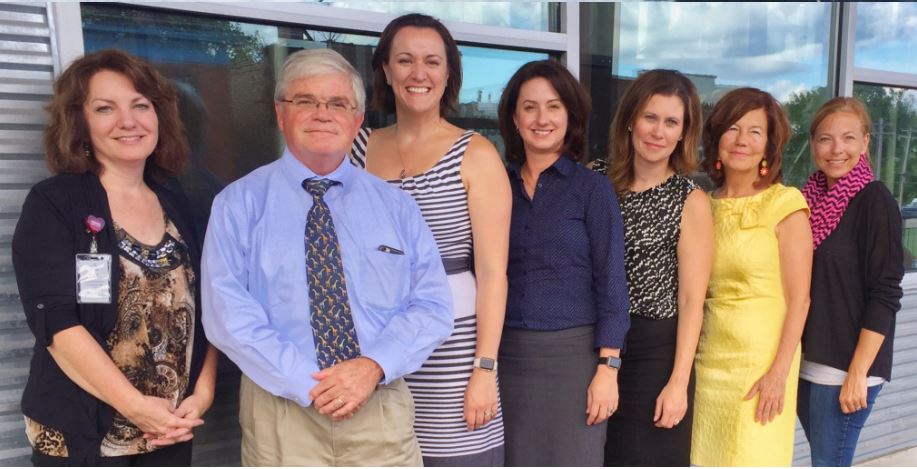How did you end up at CID/Washington University?
In my junior year at the University of Michigan I took a class that changed my life. It was taught by William Stebbins, a behavioral psychologist who was studying the sensory behavior of animals using operant conditioning behavioral techniques.
Dr. Stebbins invited me to join his lab group, and the experience there led me to pursue a Ph.D. in physiological acoustics, under his direction. With him, I developed behavioral techniques to assess hearing and noise-induced hearing loss in primates, and in chinchillas. The chinchilla gained popularity for behavioral studies of hearing because, unlike mice or guinea pigs, chinchillas have a lifespan of 20 years or more, and their hearing sensitivity is remarkably similar to humans.
My work attracted the attention of Professor Ira Hirsh, who was then Director of Research at the Central Institute for the Deaf (CID), and the chair of the psychology department at Washington University. CID was known as a mecca for research on noise-induced hearing loss, and I accepted an invitation to join as a research associate with a courtesy appointment in the department of psychology, starting a career in 1975 that has been exciting ever since.
In 2003 the research, clinic, and professional education programs were transferred formally into the School of Medicine, as the Program in Audiology and Communication Sciences (PACS) and it has been my honor and pleasure to celebrate its growth and success over the ensuing 17 years.
What about your work makes you most proud?
I am most proud, by far, of the outstanding quality of students we have been able to recruit, train, and join the ranks as teachers of the deaf, audiologists, and Ph.D. researchers, not just in the U.S., but across the world. They are the fruits of our passion for improving outcomes for individuals with deafness, and carrying our mission throughout the world.
Tell us about your work in noise-induced hearing loss. How do you feel it’s made a difference?
My behavioral studies of noise-induced hearing loss and cochlear damage in chinchillas, conducted in collaboration with anatomist Barbara Bohne, PhD, helped us better understand the relations between changes in hearing sensitivity and anatomical damage to the cochlea caused by exposure to excessive noise. With colleagues Duck Kim, D.Sc., and Donal Sinex, PhD, we demonstrated the ear can be toughened, and protected against subsequent exposures.
The other part of my work that I’m proud of relates to studies of hearing levels of individuals working in noisy occupations. Our studies include railroad trainmen, coal miners, and firefighters and provide important data not just to scientists, but to groups charged with developing standards to protect workers from occupational hearing loss not just in the US, but around the world.
What do you most enjoy about working at Washington University/PACS?
I most enjoy the amazing people I’ve had the opportunity to meet and work with over the years. First and foremost, the faculty and staff in our PACS office. Our administrative group, Beth Elliott, Beth Fisher, and Rene´Miller have all worked with or for me for decades, and our Directors of Deaf Education (Heather Grantham) and Audiology (Mandy Ortmann) both had ties to CID/WU that predate our transfer to the School of Medicine in 2003.
I’ve also enjoyed the WU leaders I’ve worked with in my role as Chairman of the Faculty Senate Council several years ago. These include Mark Wrighton, Barbara Schaal (dean of Arts and Sciences), Holden Thorp, Bill Danforth, and many others. One of my duties as chair of the Faculty Senate Council was to sit with the speaker at the overall university commencement. The speakers I hosted were Senator Cory Booker, historian Ken Burns, and St. Louis Cardinals manager Tony La Russa. Each, in very different way, was very interesting, and it was an honor to meet them.
Lastly, I was very fortunate to work with Drs. Hallowell Davis, Ira Hirsh, and Jerry Cox. Dr. Cox founded the computer science department at WU, and has been a close personal friend for many years.
Do you have any special retirement plans?
Well, I’ve entered into an enhanced phased retirement plan with WU, and I stepped down as Program Director on June 30 and stay on the faculty for one more year, retiring on June 30, 2021. For the next year I plan to focus my efforts on improving disability accommodations for students at WU, both in the school of medicine and university-wide. I’m chairing a task force in the medical school, and serving on the chancellor’s council, and although the current climate is certainly challenging, there is an opportunity to coordinate and centralize services to provide more efficient and effective services.
And in my spare time, I look forward to spending time with my wife, Chris, and our grown children and many friends at our home on Grand Traverse Bay in Northport, MI.
